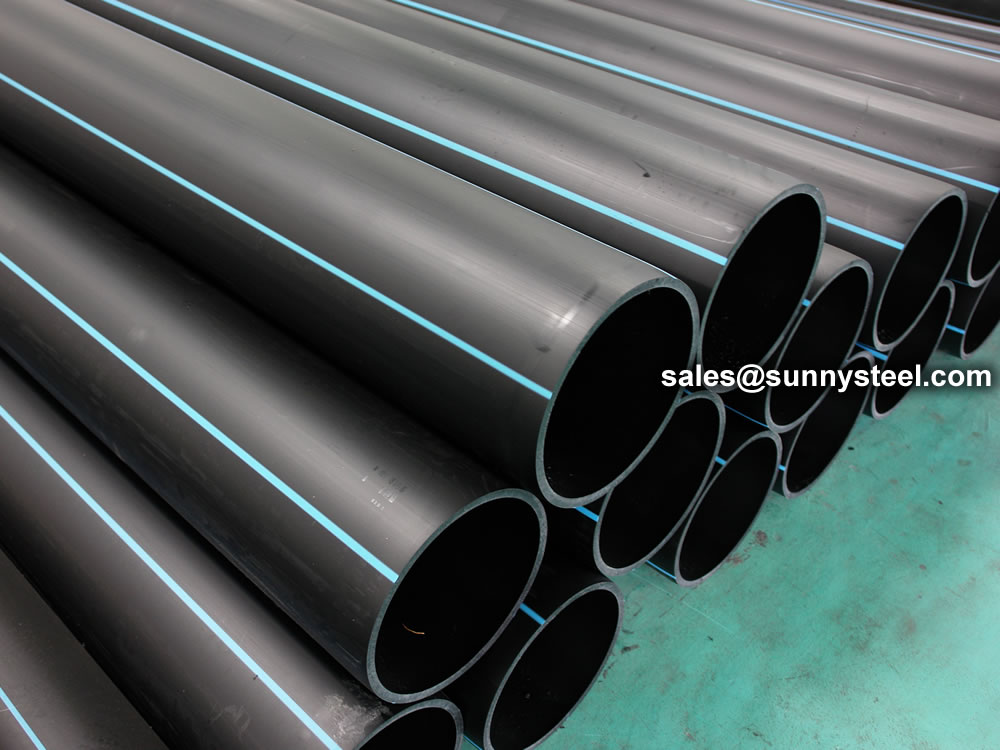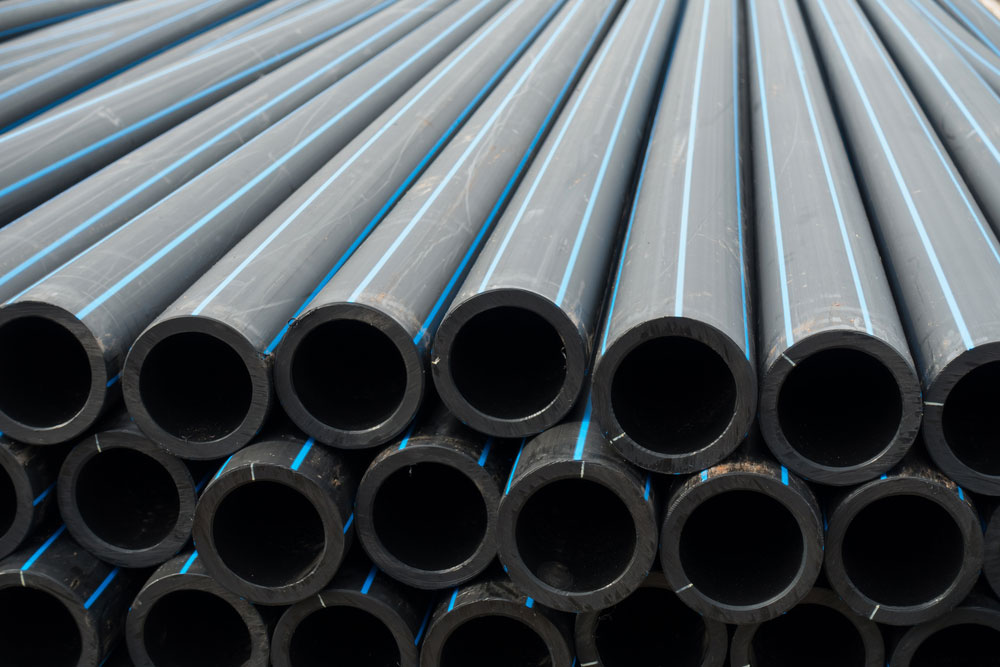Common Questions About Texas hdpe pipe manufacturer and Their Products
Understanding the Secret Benefits of HDPE Pipeline for Water and Wastewater Management
Making use of HDPE pipeline in water and wastewater administration provides various advantages that warrant factor to consider. Its extraordinary longevity and long life-span make it a recommended option for many projects. Additionally, the material's resistance to corrosion and chemical damage improves its reliability in numerous settings. Nonetheless, the advantages extend past simply longevity and resistance. Discovering its cost-effectiveness and environmental impact reveals much more compelling reasons for its extensive fostering in modern facilities
Outstanding Toughness and Durability

HDPE pipe attracts attention for its remarkable sturdiness and durability, making it a recommended selection in water administration systems. Built from high-density polyethylene, these pipelines can endure substantial stress and stress, ensuring trustworthy performance over time. Their robust nature enables them to endure extreme ecological conditions, including temperature changes and soil activities, which can create various other materials to fail.
The lifespan of HDPE pipes usually exceeds 50 years, supplying a cost-effective option for communities and markets alike. In addition, the product's lightweight buildings streamline installation, lowering labor costs and durations. This resilience minimizes the requirement for regular repair services or substitutes, even more enhancing its financial allure.
In water monitoring applications, the dependability of HDPE pipes means less interruptions and enhanced solution connection, making them essential to lasting infrastructure advancement. The combination of longevity and durability strengthens HDPE's function as a foundation in reliable water management solutions.

Resistance to Corrosion and Chemical Damage
While many products catch deterioration and chemical damages in time, HDPE pipelines show exceptional resistance, making them excellent for numerous water monitoring applications. This durability originates from the molecular framework of high-density polyethylene, which is inherently non-reactive and does not rust like steels or deteriorate from direct exposure to severe chemicals. Therefore, HDPE is extremely effective in atmospheres with hostile materials, such as wastewater systems that may contain acids, bases, and organic solvents.
Furthermore, HDPE pipelines can stand up to ecological aspects such as soil acidity and saline conditions, additionally enhancing their suitability for varied applications (Pipe Manufacturing Midland TX). Their capability to maintain architectural honesty in time minimizes the danger of leakages and failures, which is critical in making sure the safety and security and integrity of water circulation and wastewater management systems. As a result, the resistance to deterioration and chemical damage noticeably adds to the overall performance and longevity of HDPE piping services
Cost-Effectiveness and Financial Benefits
When thinking about the monetary implications of water administration systems, the cost-effectiveness of HDPE pipes becomes evident. These pipes provide lower setup and maintenance expenses compared to standard products like steel or concrete. Their lightweight nature simplifies transport and setup, resulting in reduced labor expenditures. Additionally, HDPE pipelines exhibit a long life-span, typically going beyond half a century, which translates to fewer replacements and long-lasting financial savings.
Moreover, the resistance of HDPE to rust and chemical damage decreases the requirement for pricey repair work and substitutes. The pipes likewise support reliable water circulation, decreasing energy prices connected with pumping systems. By alleviating leakages and water loss, HDPE pipes contribute to considerable financial advantages for districts and markets alike. In general, the preliminary investment in HDPE piping can produce significant financial returns over the life expectancy of the water management system, making it a prudent choice for lasting facilities advancement.
Environmental Sustainability and Decreased Impact

Versatility and Adaptability in Installment
As a result of their unique properties, HDPE pipes use exceptional flexibility and versatility in installation, making them suitable for a large range of applications. Their lightweight nature allows for easier handling and transport, reducing labor expenses and setup time. HDPE pipes can be curved and shaped to fit numerous terrains and job needs, which is particularly useful in testing atmospheres.
Furthermore, their resistance to deterioration and chemical damage permits setup in varied settings without the need for specialized safety finishings. The capacity to fuse joints develops a constant, leak-free system, enhancing the overall stability and reliability of the installation. HDPE's flexibility additionally fits ground motion, reducing the threat of damages in areas prone to moving soil. On the whole, these attributes make HDPE pipelines not only functional but additionally a preferred choice for water and wastewater monitoring systems.
Often Asked Concerns
Exactly How Does HDPE Pipeline Contrast to PVC in Water Management Applications?
HDPE pipe uses premium adaptability, resistance to rust, and sturdiness contrasted to PVC. Its lighter weight facilitates simpler installation, while its lengthy life-span minimizes replacement expenses, making HDPE a preferred choice in water administration applications.
What Is the Life Expectancy of HDPE Water Lines Under Typical Conditions?
Under regular conditions, HDPE pipes can have a life expectancy ranging from 50 to 100 years. Their toughness and resistance to corrosion add to their long-lasting efficiency in different applications, making them a reputable option for infrastructure.
Are HDPE Piping Recyclable After Their Life Span?
Yes, HDPE copper pipe fittings pipes are recyclable after their service life. Pipe Manufacturing Midland TX. They can be refined and repurposed into brand-new products, considerably decreasing environmental influence and advertising sustainability within the market, making them an environment-friendly selection for piping remedies
What Is the Setup Refine for HDPE Pipes?
The setup process for HDPE pipes includes website preparation, trenching, pipeline combination or mechanical joining, backfilling, and pressure screening. Correct methods ensure a durable and effective system for transferring water and wastewater effectively.
Can HDPE Piping Be Utilized for Both Safe And Clean and Non-Potable Water Solutions?
Yes, HDPE pipelines can be made use of for both safe and clean and non-potable water systems. Their flexibility, resilience, and resistance to corrosion make them ideal for various applications, guaranteeing secure and reliable transport of water in various contexts.